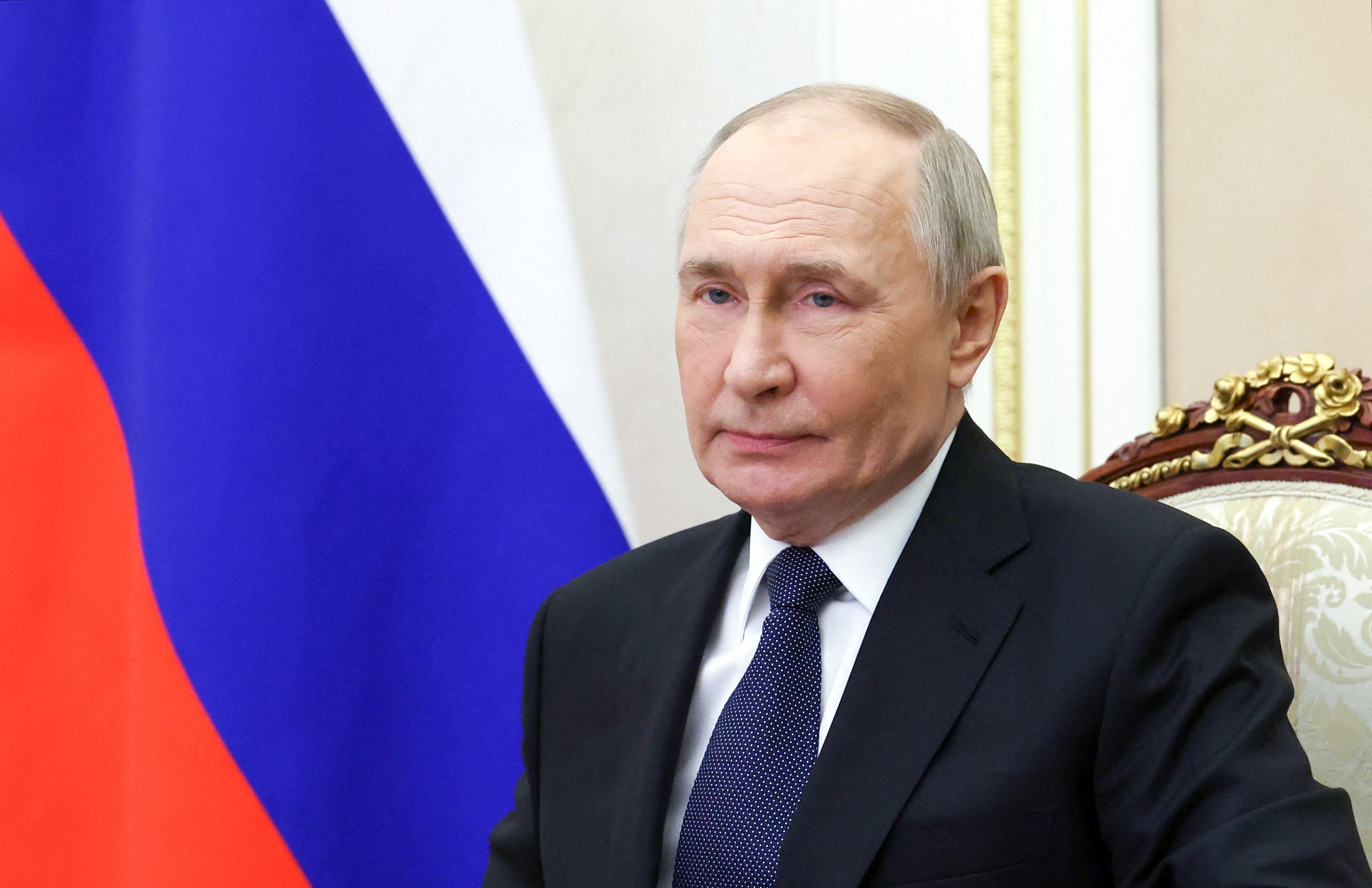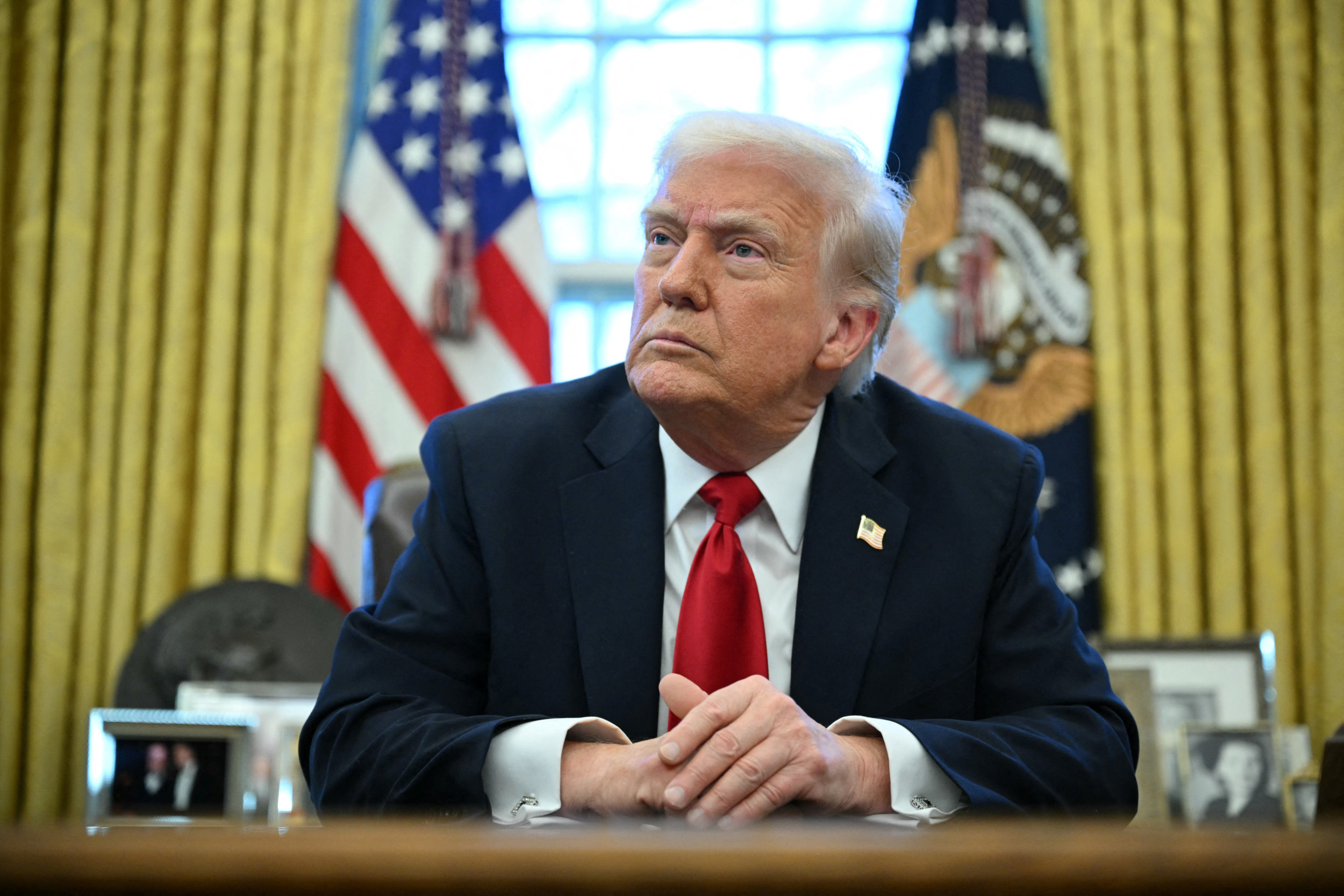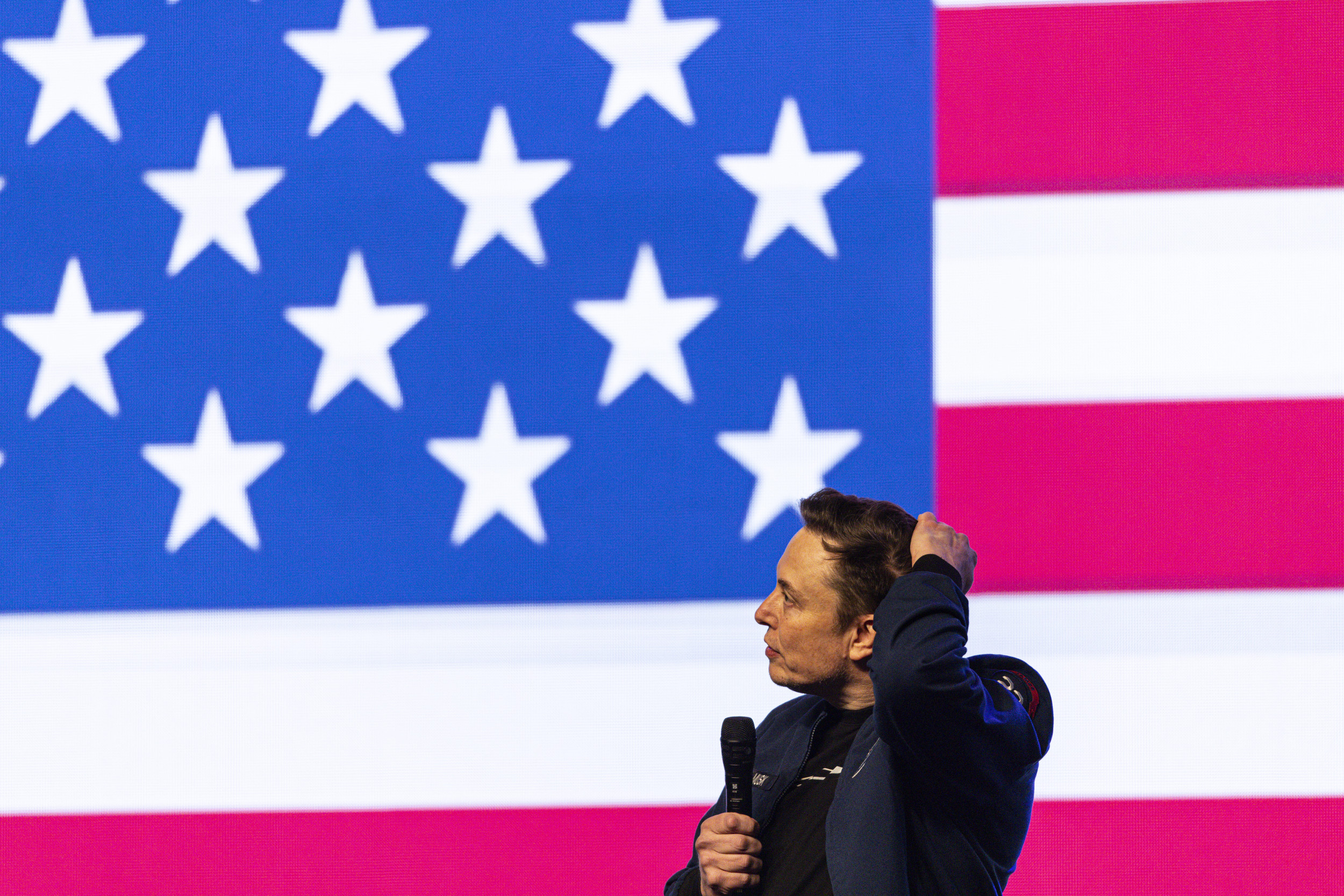The Kremlin said it remained committed to working with the United States after President Donald Trump said he was "pissed off" by some of Russia's recent actions under President Vladimir Putin.
Dmitry Peskov, the Kremlin's spokesman, responded to Trump's remarks at a press conference on Monday morning.
"Some of the statements were given in paraphrase, they were not direct quotations. That's the first thing," Peskov said, according to Russian media.
Newsweek reached out to the White House for comment.
Why It Matters
Putin rejected Washington's initial proposal for a ceasefire. Last week, he added conditions to a Black Sea ceasefire, after which Trump admitted that the Russian leader could be dragging his feet over any deal.
NBC reported Trump as saying he was "very angry" with Putin, marking a change of tone from the U.S. leader's previous touting of his strong ties with his Russian counterpart.

What To Know
Putin's spokesperson was asked about Trump's anger toward the Russian president after reports that Trump had been unhappy with him for questioning the authority of Ukrainian President Volodymyr Zelensky.
The Kremlin has repeatedly said that Zelensky is no longer the legitimate leader because wartime martial law has precluded presidential elections.
Agence France-Presse reported that Putin has called for a transitional government in Kyiv, which could push out Zelensky, a leader with whom Trump may have clashed but has made progress since his White House return.
Peskov tried to dampen tensions, telling reporters Monday that "several different statements were actually made" and that Moscow was working on some of the ideas in the proposed Ukrainian ceasefire.
He said that Russia was working to build bilateral ties, which had been damaged during the Biden administration—former U.S. President Joe Biden had driven through economic sanctions aimed at choking Moscow's war machine.
But Trump also said over the weekend that he was considering imposing secondary tariffs on Russian oil if he thought Putin was to blame for being unable to agree to a deal stopping the bloodshed in Ukraine.
What People Are Saying
President Donald Trump: "If Russia and I are unable to make a deal on stopping the bloodshed in Ukraine, and if I think it was Russia's fault—which it might not be...I am going to put secondary tariffs on oil...coming out of Russia."
Kremlin spokesman Dmitry Peskov: "We continue to work with the American side, above all, on building our bilateral relations, which suffered enormous damage during the previous administration."
What Happens Next
Trump had spoken positively about Putin, Zelensky, and the prospect of peace, so his swipe at the Russian leader could be another negotiating tactic.
Trump has also threatened Zelensky with "big problems" if he refused to sign a deal allowing Washington to exploit minerals, signaling growing problems in negotiations to end the war started by Putin.
Update 03/31/25, 11:02 a.m. ET: This article was updated with additional information.
fairness meter
About the writer
Shane Croucher is a Breaking News Editor based in London, UK. He has previously overseen the My Turn, Fact Check ... Read more




